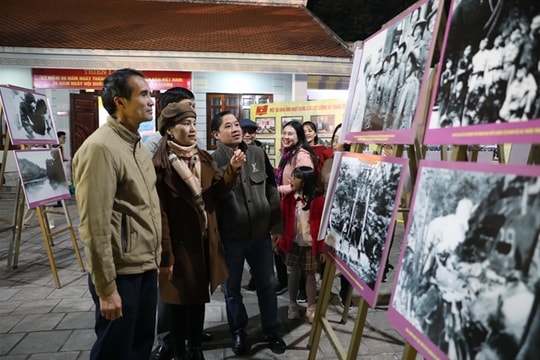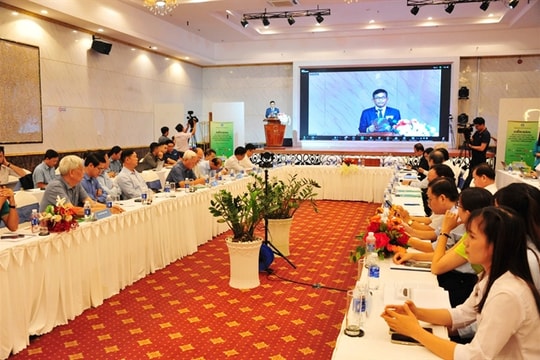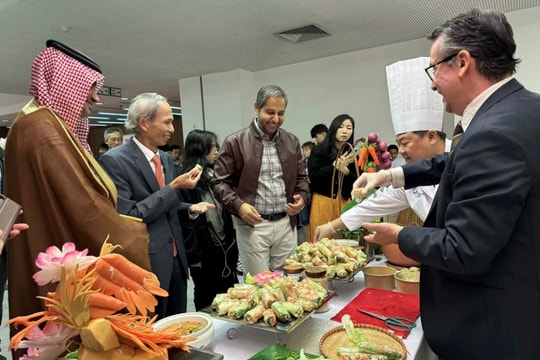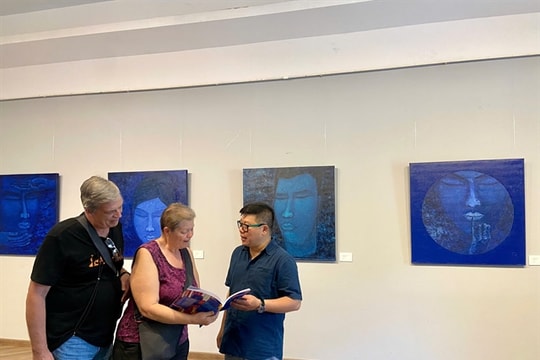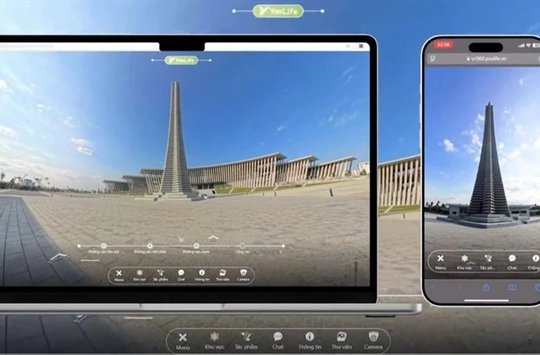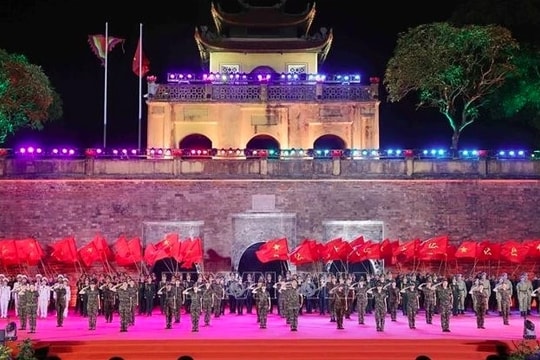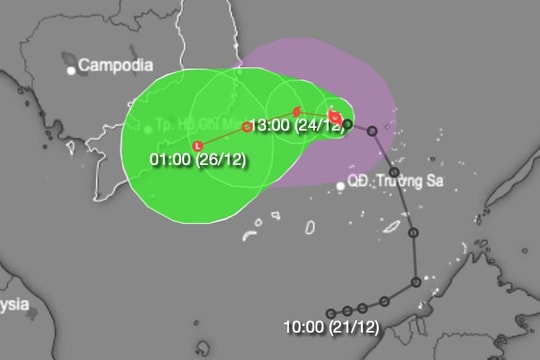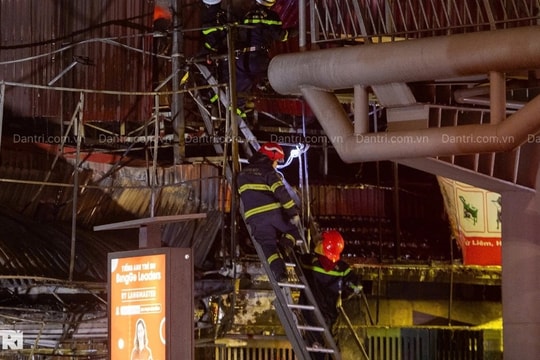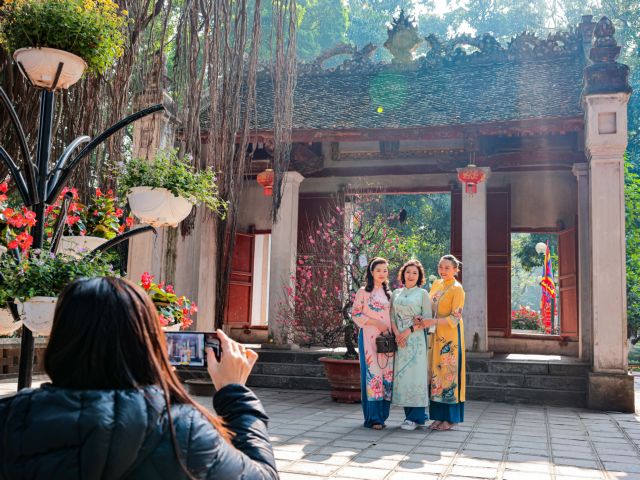 |
| Tourists take photos in front of the entrance of the Voi Phục Temple. — VNA/VNS Photo Hoàng HIếu |
HÀ NỘI — The Voi Phục Temple, a national relic site in Ngọc Khánh Ward in Ba Đình District, Hà Nội, has been recognised as a special tourist site by the capital city's People’s Committee.
Other places, namely Đảo Ngọc – Trúc Bạch in Trúc Bạch Ward, Ba Đình District and Kim Lan in Kim Lan Commune, Gia Lâm District were also recognised as tourist sites.
The people’s committees of Ba Đình and Gia Lâm districts are responsible for managing, exploiting and developing the tourist sites in line with the Tourism Law and other legal documents.
Voi Phục Temple, part of the Thăng Long Tứ Trấn (Four Sacred Temples of Thăng Long-Hà Nội) which are associated with the birth of the capital Thăng Long under the Lý Dynasty (1009–1054). They include Bạch Mã Temple in the east, Voi Phục Temple in the west, Kim Liên Temple in the south and Quán Thánh Temple in the north. These temples were built to worship the gods Long Đỗ, Linh Lang Đại Vương, Cao Sơn Đại Vương and Huyền Thiên Trấn Vũ, respectively.
Voi Phục Temple is dedicated to Linh Lang – a historical figure who helped King Lý Thánh Tông to defeat the invaders.
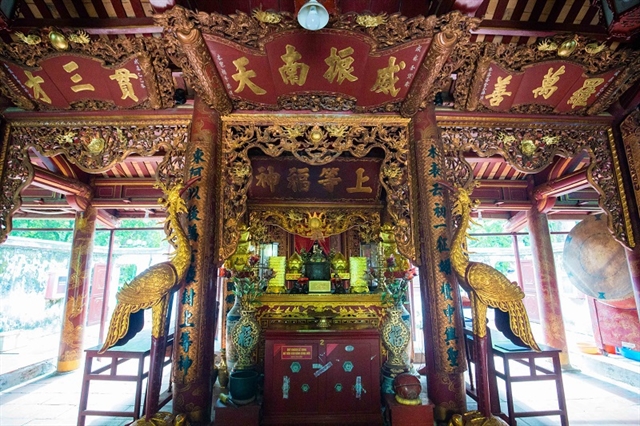 |
The temple has three main chambers and two small auxiliary compartments. The temple's inner sanctum consists of three compartments, with altar statues made of wood and bronze, while the harem is also the place to worship the mother of Linh Lang and the Holy Mother.
Voi Phục Temple is one of the most revered spiritual places in Việt Nam. In 1994, people in Thủ Lệ area donated money to recast the 93cm high bell with a body divided into four quarters and embossed with the words 'Superior Western Temple'.
Nguyễn Mạnh Quyền, deputy chairman of municipal People's Committee, said that Hà Nội's tourism sector is growing strongly, attracting a large number of tourists, especially foreigners. The city always considers tourism a key economic sector and is attentive to preserving tourist attractions and long-standing historical relic sites to meet the increasing demand of visitors. — VNS



